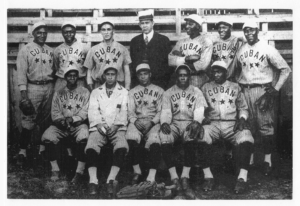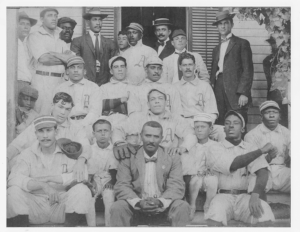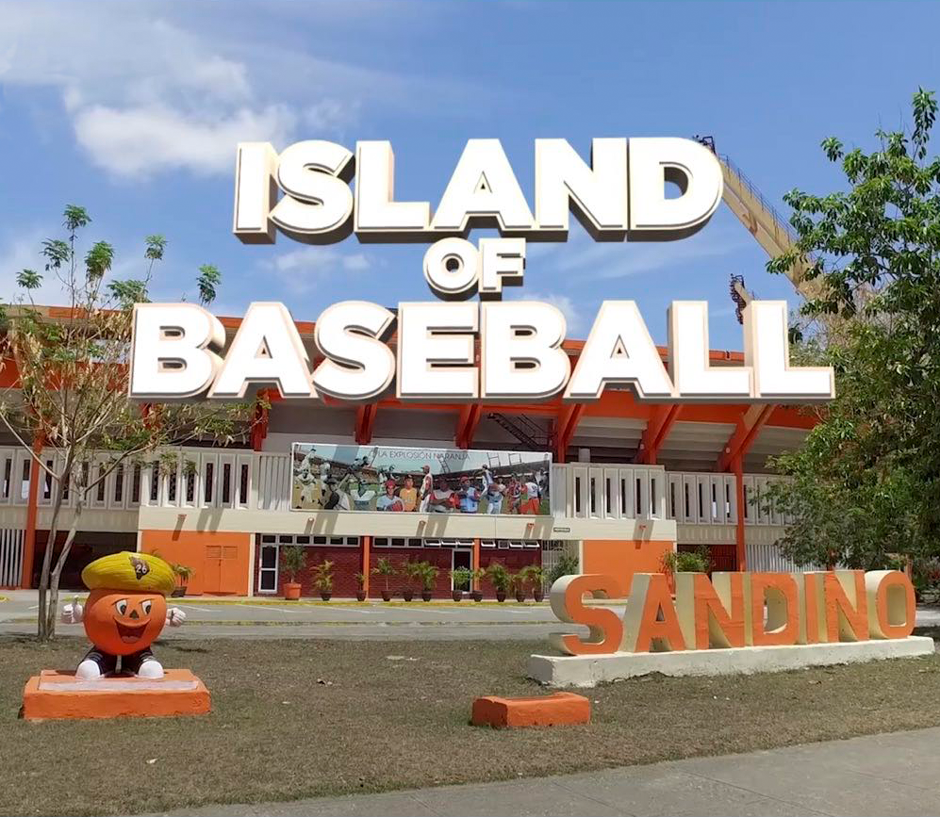Island of Baseball explores the rich relationship between baseball in Cuba and the United States and the way in which the vital exchange of black players from America who played in Cuba and Afro-Cuban players who played in the U.S. leagues played a role in ending segregation in the U.S. major leagues. This film details the period from 1907 to 1960 when the ascent of Fidel Castro shut the open door that linked the two countries.
The film chronicles how baseball was brought to Cuba and started to flourish at the time of the American civil war, Cuban culture — its distinctive music, dance, and politics — were closely intertwined with Cuban independence. The lore of the game’s origins shares a close parallel with the myth of baseball’s genesis in Cooperstown, NY. Along the way, the film highlights some of the strong personalities who shaped the course of professional baseball in Cuba, including John McGraw of the New York Giants; Alex Pompez the famed promoter of Cuban baseball who helped export the island’s greatest talent to the US; Adolfo Luque, who won 194 major league games and left his indelible mark managing in the Cuban winter leagues for five decades; Jose de la Caridad Mendez, Cuba's greatest pitcher of the early 20th century and Martin Dihigo, called “El Inmortal” in Cuba and “El Maestro” in Mexico. Dihigo was often compared to Negro League stars Satchel Paige or Josh Gibson. He is remembered as the greatest Latin American player of the 20th Century and has been inducted into the Baseball Hall of Fames, the game’s highest honor.

Important Afro-Cuban players like Dihigo, Jose Mendez, and Cristobal Torriente emerged from local factory and mill teams, Cuban institutions that were an important proving ground. They eventually gravitated toward the big city — to Havana — and to the Negro Leagues in the United States where they excelled at the highest level of competition. All were posthumously inducted into baseball’s Hall of Fame in Cooperstown. Even the Brooklyn Dodgers came to Havana in the spring of 1947 to avoid the racial hostilities prevalent in Florida as they prepared to break the color barrier with Jackie Robinson. The continuation of integrated baseball in Cuba and its place as a proving ground for future major leaguers highlights the significance of this relationship and its little-known role in the re-integration of the major leagues.

It’s a fascinating story told through recollections of former players, historians who give context to our story, and fans whose passion for the pre-Castro game is clearly expressed in their many vivid anecdotes. With never-before-seen historical footage and photographs from our own private collection as well as those from the home movies of many others, we weave a compelling story of baseball, politics, and the power of racial tolerance.


 Important Afro-Cuban players like Dihigo, Jose Mendez, and Cristobal Torriente emerged from local factory and mill teams, Cuban institutions that were an important proving ground. They eventually gravitated toward the big city — to Havana — and to the Negro Leagues in the United States where they excelled at the highest level of competition. All were posthumously inducted into baseball’s Hall of Fame in Cooperstown. Even the Brooklyn Dodgers came to Havana in the spring of 1947 to avoid the racial hostilities prevalent in Florida as they prepared to break the color barrier with Jackie Robinson. The continuation of integrated baseball in Cuba and its place as a proving ground for future major leaguers highlights the significance of this relationship and its little-known role in the re-integration of the major leagues.
Important Afro-Cuban players like Dihigo, Jose Mendez, and Cristobal Torriente emerged from local factory and mill teams, Cuban institutions that were an important proving ground. They eventually gravitated toward the big city — to Havana — and to the Negro Leagues in the United States where they excelled at the highest level of competition. All were posthumously inducted into baseball’s Hall of Fame in Cooperstown. Even the Brooklyn Dodgers came to Havana in the spring of 1947 to avoid the racial hostilities prevalent in Florida as they prepared to break the color barrier with Jackie Robinson. The continuation of integrated baseball in Cuba and its place as a proving ground for future major leaguers highlights the significance of this relationship and its little-known role in the re-integration of the major leagues.
 It’s a fascinating story told through recollections of former players, historians who give context to our story, and fans whose passion for the pre-Castro game is clearly expressed in their many vivid anecdotes. With never-before-seen historical footage and photographs from our own private collection as well as those from the home movies of many others, we weave a compelling story of baseball, politics, and the power of racial tolerance.
It’s a fascinating story told through recollections of former players, historians who give context to our story, and fans whose passion for the pre-Castro game is clearly expressed in their many vivid anecdotes. With never-before-seen historical footage and photographs from our own private collection as well as those from the home movies of many others, we weave a compelling story of baseball, politics, and the power of racial tolerance.